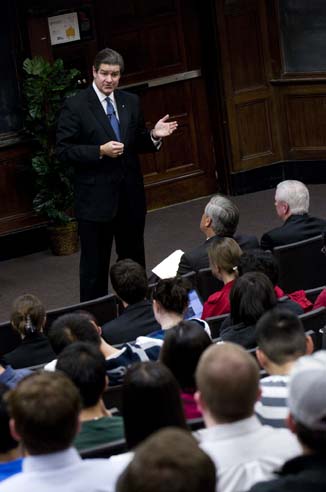 It’s been about a month now since I completed my MPA internship in Dallas, and I’ve got to say, I still haven’t gotten used to the fact that I have to be a student again. I really enjoyed being able to go home and not have any homework to worry about. I even had time to watch American Idol for the first time ever (I’m a little behind on the craze). Getting paid to work hard rather than paying to work hard was nice, too.
It’s been about a month now since I completed my MPA internship in Dallas, and I’ve got to say, I still haven’t gotten used to the fact that I have to be a student again. I really enjoyed being able to go home and not have any homework to worry about. I even had time to watch American Idol for the first time ever (I’m a little behind on the craze). Getting paid to work hard rather than paying to work hard was nice, too.
However, waking up at 6:30 a.m. Monday through Friday is something I could do without, and one thing I’ve thoroughly enjoyed since I’ve been back at school is not setting my alarm. Having class two days per week from noon to 6 p.m. certainly has its perks. Five days off and two days of work…completely opposite from my work schedule.
I’m really grateful for the unique internship opportunity that the MPA program incorporates into our degree. To be able to spend three months doing an internship that reflects exactly what we’ll be doing in our full-time job is a fantastic chance to see what’s ahead, but still be able to come back and learn about our profession from a different perspective. To sit through an Introduction to Auditing class when you’ve never seen a real audit is kind of like reading assembly instructions without any visuals. You understand what you’re reading, but it’s tough to see the big picture since you have no idea what the final product is supposed to look like. Now, having worked on a few audits during my internship, I have a completely different perception of an audit for my Studies in Auditing capstone class. So far, the class has been much more rewarding and interactive than my Intro to Audit class. It has nothing to do with the quality of my professors for the two classes (both are excellent); rather, I think it is because I have seen what an audit actually looks like so I am able to better appreciate what I am learning. Continue reading My Busy & Exciting MPA Internship: An Overview




